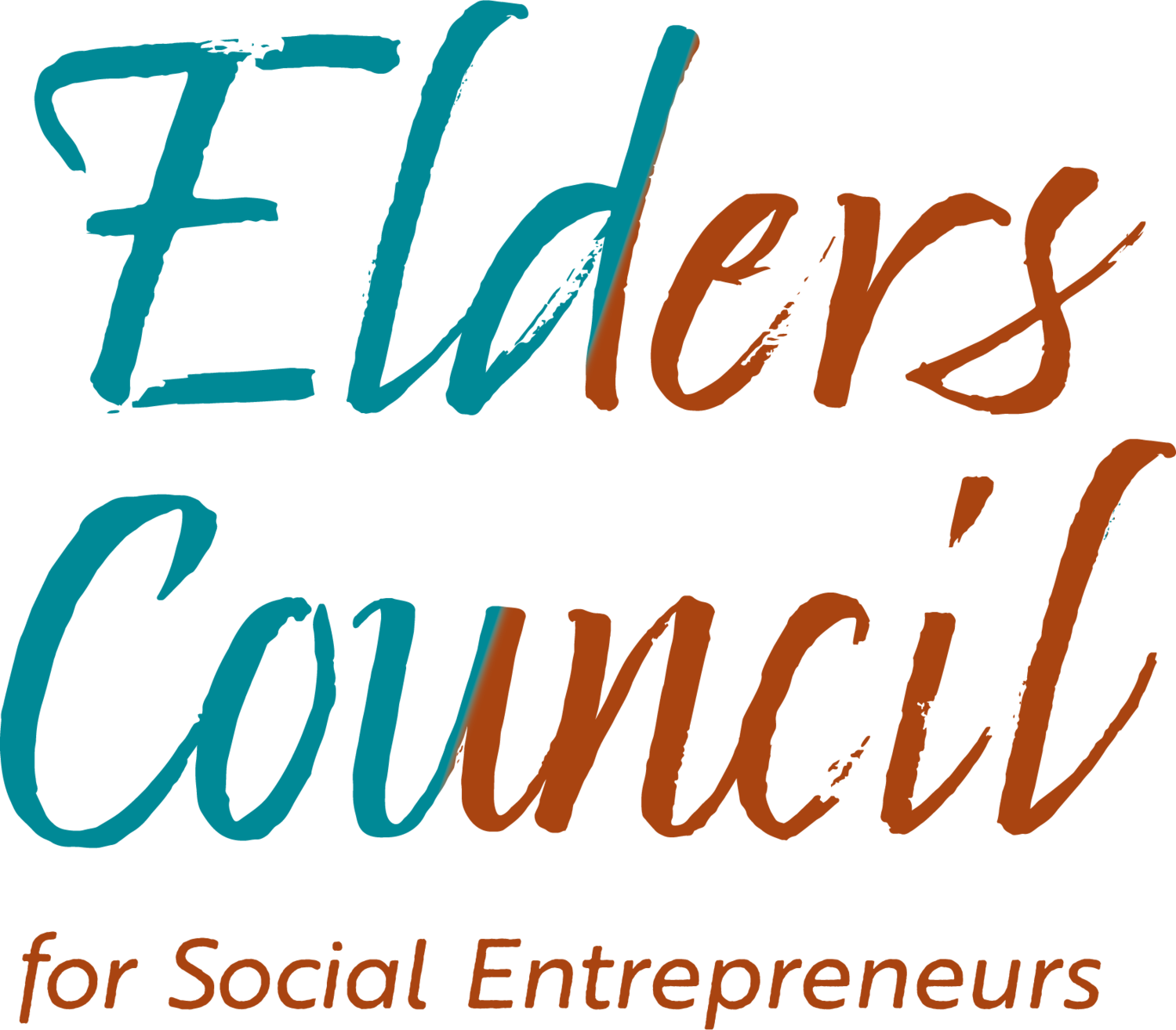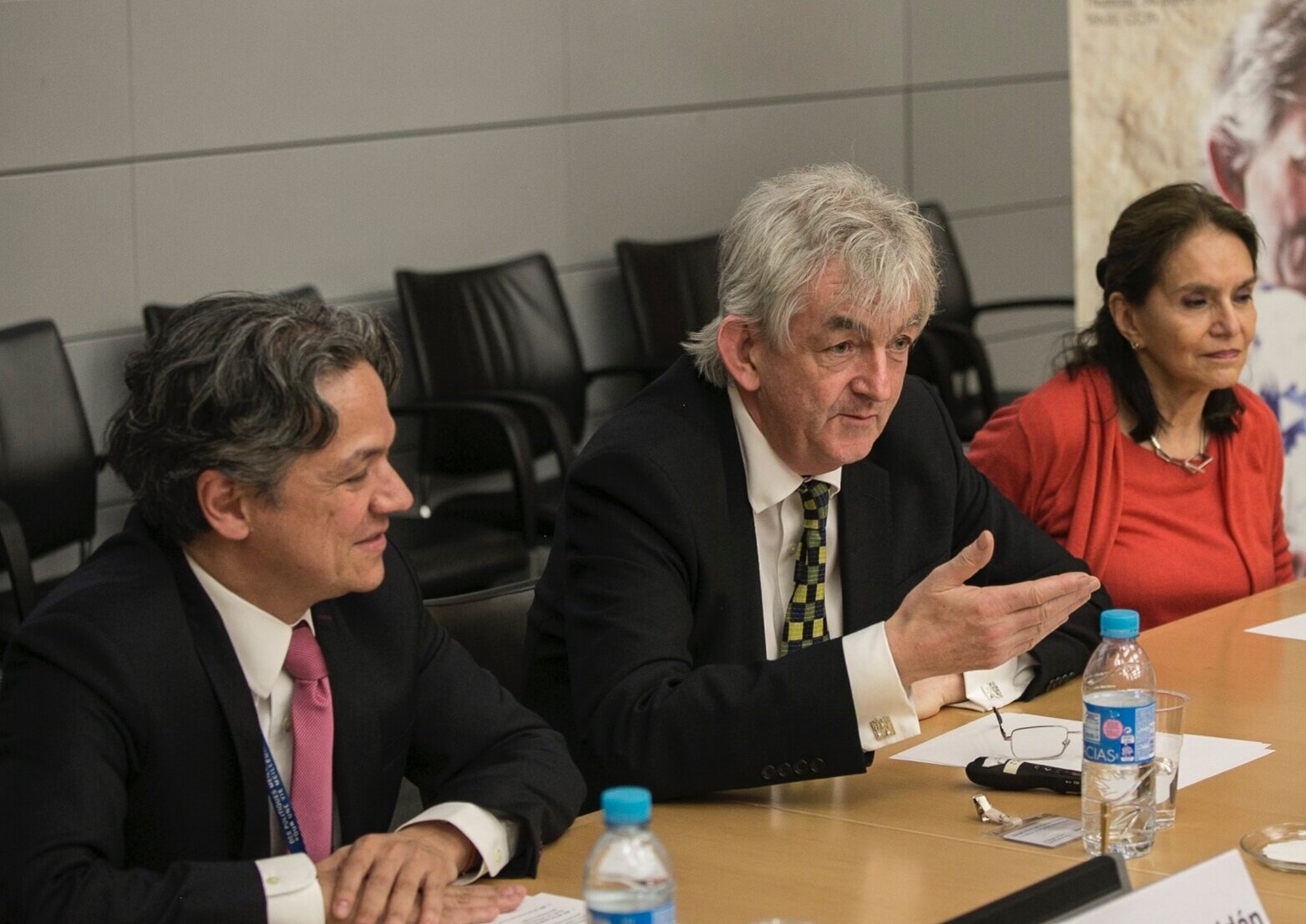Three social entrepreneurs with a shared vision, here’s their story.
“Succession and transition: there needed to be a platform for so much wisdom to be shared.”
Andrea Coleman.
Riders for Health, Two Wheels for Life.
Andrea Coleman is co-founder of Riders for Health and founder of CEO of Two Wheels for Life. Riders for Health has built systems for managing motorcycles and motorised vehicles to ensure health care is delivered – predictably and reliably - however harsh the conditions or however remote the community. Money is saved and people are employed and trained to a very high standard. Riders works in 5 African countries - Lesotho, Nigeria, Malawi, Liberia and The Gambia ‘Introducing innovations for vehicle management in Africa to deliver health care requires persistence and an impatience with the status quo. I have both in abundance’ she says.
In 2013 Andrea won the Women of the Year Award, sponsored by Barclays. In 2004 she won the Sage/Daily Telegraph Best Business Leader award and in 2006 won the Ernst & Young Entrepreneur Of The Year Award. Andrea was selected to join the Schwab Foundation network of social entrepreneurs in 2004 and Andrea has been a fellow of the Skoll Foundation for Social Entrepreneurship since 2005 and is now a senior fellow of Ashoka.
“Social entrepreneurship is still a very new concept and exit planning is something which most founders had never thought about.”
Mel Young.
Homeless World Cup, Sportscotland.
Mel Young MBE is currently Chairman of Sportscotland and President of the Homeless World Cup, which he co-founded in 2003.
He is an active social entrepreneur. He is a Schwab Fellow of the World Economic Forum, a Senior Ashoka Fellow and a Board member of the Catalyst 2030 network.
He is a lover of sport and a firm believer in the power of sport to create positive change.
He is author of two books: Home Game; A Ball Can Change The World, which he wrote with Peter Barr, and Social Entrepreneurship: A better Way of Thinking About a Sustainable Future, which he wrote with Alexandra Matthews. Previously he worked as a journalist; co-founded The Big Issue in Scotland in 1993 and co-founded Senscot (Social Entrepreneurs Network Scotland). He is former President and Honorary President of INSP (International Network of Street Papers) and also set up City Lynx magazine and New Consumer Magazine. He is also Co-Founder of The New Ism.
He has five Honorary Degrees from Scottish Universities. He has received several awards including an MBE and the prestigious Jackie Robinson Humanitarian Award. He is a lifelong supporter of Hibernian FC.
Chris working at a mental health clinic in South Tanzania.
“We are creating a global network which is friendly and open where we can share our wisdom and move forward.”
Chris Underhill MBE.
Thrive, ADD, Basic Needs, citiesRISE, and Mentor Service.
Chris Underhill MBE is a social entrepreneur, professional mentor and a global expert on mental health delivery.
In 1978 he started his first social enterprise. This is called Thrive and it is the UK organisation that uses gardening to bring about change in the lives of those living with disabilities or ill health. In 1985 he founded Action on Disability and Development (ADD) that works with disabled people in developing countries. In 1995 he was invited to be the CEO of the Intermediate Technology Development Group, now known as Practical Action and in 2000 he went on to found BasicNeeds the mental health charity working in developing countries which he retired from in 2016. Currently he is building his mentoring practice Mentor Services.
Chris is a Senior Ashoka Fellow, and a recipient of the Skoll Award for Social Entrepreneurship and of the Schwab Foundation award for Social Entrepreneurship. In 2000 he was honoured by HRH the Queen with an MBE for services to disability and development.
Our Story.
Like most good ideas, the Elders Council for Social Entrepreneurs was born following an uplifting informal conversation. In this case three social entrepreneurs – Chris Underhill, Andrea Coleman and Mel Young met for dinner in 2017 and this is their story.
We were all heading to London for a meeting the next day and we thought it would be an idea to catch up over dinner the night before. We didn’t have any agenda but as social entrepreneurs we wanted to catch up and share our insights from our own journeys.
Just like any social entrepreneurs who get together, we were all upbeat and talking positively about how the world could change. Then we hit on the subject about how careers for social entrepreneurs might end. This was particularly relevant because we were all getting older even if we weren’t really prepared to admit it. Did we have an exit strategy? We all still had a passion about changing the world, so we weren’t going to retire, were we? In fact, we hated the word “retire”!
We all shared our own personal experiences and situations and talked about many connected issues including succession planning, how to leave, how to stay, personal financial security in later life, long-term sustainability of the organisations we had established, when to go and when not to go, the potential make up of Boards, and our own personal situations.
We shared insights and drew comfort from each other’s situations. We were expressing similar very feelings even if our social organisations were working in very different fields.
Again, we all agreed that retirement was a word that we didn’t like. Social entrepreneurs are a breed of people who pioneer and set up organisations which have the very clear purpose of making the world a better place. Social entrepreneurs are not interested in making plans for moving on but are focused on doing more!
But we all grow older and therefore planning for the future becomes so important both for the individual social entrepreneurs and for the organisations which they established. As the sector was in its infancy, there were no precedents. There was no-where where we could go and say: what do we do when we get older and potentially have to move on?
We are all Fellows of Ashoka, an organisation which supports social entrepreneurs and we discussed this issue with staff across their European offices. In September 2019, a group of social entrepreneurs met in Aix-en-Provence in France for three days to discuss the whole issue of eldership amongst social entrepreneurs in a private setting. The whole event was organised and supported by Ashoka. There were honest and frank discussions amongst the participants with everyone being incredibly open about their own personal situations. People felt comfortable amongst friends. We were all facing the same fundamental challenges. Everyone was in agreement that the issue was very real and that it would impact everyone in the sector at some point.
At the end of the retreat, delegates agreed the following declaration:
“We, the elders from the Ashoka Fellowship, pledge to work together to establish a Council of Elders to represent and support social entrepreneurs (in Ashoka) in every phase of transition. We will then appoint a working group to create the constitution and working practices of this council by 31st March 2020”.
A full minute of the retreat in Aix-en-Provence is available here: Aix-en-Provence Retreat Film
In 2020 the Elders Council for Social Entrepreneurship was formed with the three founders as directors. It began its life by creating a series of webinars and workshops. An application for charitable status has been applied for in England.”








